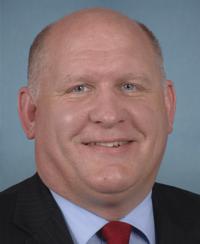0
Empowering Students Through Enhanced Financial Counseling Act
3/14/2024, 12:48 PM
Congressional Summary of HR 4984
Empowering Students Through Enhanced Financial Counseling Act - (Sec. 2) Amends title IV (Student Assistance) of the Higher Education Act of 1965 to require institutions of higher education (IHEs) to ensure that individuals who receive a Federal Pell Grant or a William D. Ford Federal Direct Loan (other than a Federal Direct consolidation Loan) receive comprehensive counseling regarding the terms and conditions of the Pell Grant or Direct Loan for each year they receive it. (Currently, IHEs are required to provide a first-time student borrower of a Direct Loan with counseling regarding the terms and conditions of such loan prior to, or upon the student's receipt of, such loan.)
Requires that counseling to be provided in a simple and understandable manner: (1) in person, (2) online, or (3) through the use of an online counseling tool maintained by the Secretary of Education. Requires the in person and online counseling sessions to use interactive programs that test the individual's understanding of the terms and conditions of the Pell Grant or Direct Loan.
Includes in the counseling provided to both Pell Grant and Direct Loan recipients:
- an explanation regarding how the student may budget for typical educational expenses that includes a sample budget based on the cost of attending the IHE;
- an explanation of the individual's right to annually request a consumer credit report;
- the estimated average income and percentage of employment in the applicable state for persons with a high school diploma or equivalent, persons with some post-secondary education without completion of a degree or certificate, and persons with a bachelor's degree; and
- an introduction to the financial management resources provided by the Financial Literacy and Education Commission.
Requires the annual counseling provided to each student receiving a Pell Grant to include an explanation of:
- the terms and conditions of the Pell Grant;
- the educational expenses such Grants cover;
- why the student may have to repay the Grant;
- the maximum number of semesters or equivalent periods for which the student may be eligible for the Grant and the amount of time remaining on such eligibility;
- the fact that if the student transfers to another IHE not all of the courses the student has taken may count in meeting the program requirements at such IHE, but the time remaining on the student's Pell Grant eligibility wont change; and
- how the student may seek additional financial assistance from the IHE's financial aid office due to changes in the student's financial circumstances, including contact information for that office.
Requires the annual counseling provided to each student receiving a Direct Loan to include:
- information regarding the effect of accepting the loan on the borrower's eligibility for other forms of student aid;
- an explanation of the use of the master promissory note;
- an explanation that the borrower is not required to accept the full amount of the loan;
- an explanation that the borrower should consider accepting any grant, scholarship, or state or federal work-study jobs for which the borrower is eligible before accepting federal student loans;
- a recommendation to exhaust the borrower's federal student loan options prior to taking out private loans that typically have less favorable terms and conditions than federal loans;
- an explanation of the treatment of Direct Loans and private education loans in bankruptcy;
- an explanation of a borrower's rights in taking out a private education loan;
- an explanation of the educational expenses Direct Loans cover;
- information on the annual and aggregate limits on such loans;
- information on how interest accrues and is capitalized when it is not paid;
- information regarding the option for student borrowers of Direct Unsubsidized and PLUS Loans to pay interest while they are in school;
- the definition of half-time enrollment at the IHE and the consequences of not maintaining at least half-time enrollment;
- an explanation of the importance of contacting the appropriate offices at the IHE if the borrower withdraws prior to completing the borrower's program of study so that the IHE can provide exit counseling to the borrower;
- information regarding the borrower's anticipated (in the case of a first-time borrower) or outstanding balance and anticipated monthly payment amount under at least the standard repayment plan and the income-based repayment plan;
- information regarding the borrower's obligation to repay the full amount of the loan, regardless of the progress the borrower makes in completing the borrower's program of study;
- information regarding the likely consequences of defaulting on the loan and specified information regarding the IHE's cohort default rate;
- information on the National Student Loan Data system and how the borrower can access the borrower's records; and
- contact information for the IHE's financial aid office or other office the borrower may contact to ask questions concerning the loan.
Requires the annual counseling provided to a borrower of a Direct PLUS Loan made on behalf of a dependent student to include:
- information regarding the effect of accepting the loan on the borrower's eligibility for other forms of student aid;
- an explanation of the use of the master promissory note;
- an explanation that the borrower is not required to accept the full amount of the loan;
- information regarding the borrower's obligation to repay the full amount of the loan, regardless of the progress the student makes in completing the student's program of study;
- information regarding the likely consequences of defaulting on the loan and specified information regarding the IHE's cohort default rate;
- information on the National Student Loan Data system and how the borrower can access the borrower's records;
- contact information for the IHE's financial aid office or other appropriate office at the IHE the borrower may contact to ask questions concerning the loan;
- information regarding the borrower's option to pay the interest on the loan while the loan is in deferment;
- information regarding the borrower's anticipated (in the case of a first-time borrower) or outstanding balance and anticipated monthly payment amount under the standard repayment plan;
- debt management strategies;
- an explanation that the borrower has the options to prepay each loan, pay each loan on a shorter schedule, and change repayment plans; and
- contact information for the loan's loan servicer and a link to such servicer's website.
Requires an IHE, prior to making the first disbursement of a Direct Loan to a borrower for an award year, to ensure that the borrower accepts the loan for such award year by: (1) signing the master promissory note for the loan, (2) signing and returning to the IHE a separate written statement that affirmatively states that the borrower accepts the loan, or (3) electronically signing an electronic version of such statement.
(Sec. 3) Requires the exit counseling IHEs provide to student borrowers of loans under the Federal Family Education Loan (FFEL), Direct Loan, and Federal Perkins Loan programs to be conducted through: (1) the use of an interactive program, (2) during an in-person or online session, or (3) through the use of an online counseling tool maintained by the Secretary.
Adds to the information such counseling shall provide:
- the outstanding principal and interest due on the loans;
- an explanation of the grace period preceding repayment and the expected date the borrower will enter repayment;
- an explanation that the borrower has the option to pay any interest that accrued while the borrower was in school or that may accrue during grace, deferment, or forbearance periods, prior to the capitalization of the interest;
- information showing the borrower's anticipated monthly payments under at least the standard repayment plan and the income-based repayment plan;
- information indicating that a loan default may result in a decreased credit score, difficulty in renting or purchasing a home or car, and potential difficulty in securing employment;
- contact information for the loan servicer and a link to such servicer's website; and
- an explanation of the individual's right to annually request a consumer credit report.
(Sec. 4) Directs the Secretary to maintain consumer tested online counseling tools that provide recipients of assistance under title IV with the annual counseling and exit counseling this Act requires.
Requires the Secretary to: (1) use each online counseling tool to keep a record of which individuals have received counseling using the tool and notify the applicable IHE of the individual's completion of such counseling; (2) use the online annual counseling tool to notify a borrower who receives annual Direct Loan counseling through such tool regarding when the borrower should accept such loan; and (3) attempt to use the online exit counseling tool to provide exit counseling to a student who leaves an IHE without the prior knowledge of the IHE, provided the IHE provides exit counseling using such tool.
(Sec. 5) Directs the Secretary, acting through the Director of the Institute of Education Sciences, to conduct a rigorous, longitudinal study of the impact and effectiveness of the student loan counseling required under title IV or provided through such other means the Secretary requires.
Requires the study to include borrower information (in the aggregate and disaggregated by race, ethnicity, gender, income, and status as an individual with a disability) on:
- student persistence;
- degree attainment;
- program completion;
- successful entry into student loan repayment;
- cumulative borrowing levels; and
- such other factors the Secretary requires.
Directs the Secretary to evaluate the progress of the study and report any short-term findings to Congress within 18 months of the study's commencement and annually thereafter.
(Sec. 6) Makes $2 million of the amount authorized to be appropriated for maintaining the Department of Education's Financial Awareness Counseling Tool available for carrying out this Act.





